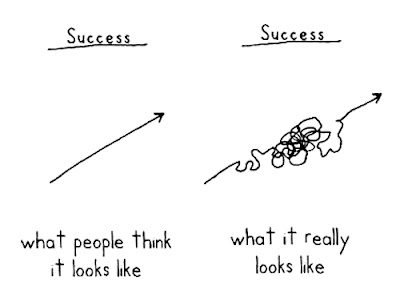
Featured Blog | This community-written post highlights the best of what the game industry has to offer. Read more like it on the Game Developer Blogs or learn how to Submit Your Own Blog Post
Video games and life lessons - The Mount and Blade Example
How can video games be the most powerful medium when it comes to teaching life lessons.

After having it stay untouched in my steam list for months (like too many other games, but I think anyone with a steam account experiences the same problem), I have finally decided to get into Mount and Blade.
What. A. Huge. Mistake.
I already have clocked around 60 hours in that game, in less than three weeks. An average of more than 4 hours a day (my role playing club keeps me busy 2 - 4 evenings a week), added to my day job (with commute times, I'm busy from 7AM to 7PM), basically, it means that I have sunk almost every single free minute I had into that game. This brings us to the lesson one :
Lesson 1 : Time management.
I actually had to project to start this blog before I started playing Mount And Blade. Well, you see how things get delayed !
I think this lesson applies to a very large number of games, even maybe to every single game in existence. Actually, it might even be expanded to a large number of hobbies.
Basically, do not sink all your free time in one single thing. Of course at first you enjoy it, but what about all these other enjoyable things you're not doing (or these not-so-enjoyable ones you should be doing).
... Ok, I'll admit this first lesson in a pretty weak one, but still, it is necessary to remember it sometimes, especially when you widen its area of application to all other activities. Usually, after three hours into the game, I would start making some very big mistakes, just because I was getting tired without really noticing it (sure, guys, my 100 kerghits can TOTALLY storm this castle with 250 nords garrisonned inside !). This is another small lesson: never try to hard, never try too long. I am NOT telling to give up as soon as you get tired, only to rest when you are tired, which is the second lesson I learnt in that game.
Lesson 2: Trying and resting.
If you have played this game, you know how pleasant it is to feel yourself growing always more powerful. Actually, most games are centered around notiong of growth of power. Every RPG in existence (levelling up, getting more gear), every strategy game (unlocking better units, advancing the tech tree, building a strong base)... Arguably every game, since you get more experience therefore gain more power, especially in mulitplayer games (you don't just beat the computer anymore, but thousands of other people).
Actually, that sense of progression is even seen as a basic element in the vast majority of games. Hell, we can even think that this sense of progression is even necessary to happiness :
"What is happiness? The feeling that power is growing, that resistance is overcome."
(Some german RTS lover called Friedrich)
But, unlike in most games, the power progression in Mount and Blade is not really linear. One bad decision and you lose your whole army that took you hours to build, you get caught, the ennemy steals some of your equipment, your villages are raided (since you're not here to protect them), new fiefs are given to other lords (since you're not here to ask for some support)... And when you finally get freed, then you and the 4 - 5 guys you managed to hire at the closest village are constantly followed by bandits who only want to kill your friends and capture you.
So, whenever I lost a battle, I just wanted to stop playing or start a new character. All my plans where now forfeit, and it felt like starting from scratch. So I usually stopped playing for a little while, then got back to it, with my motivation renewed and new plans made up in my mind.
This is lesson number two. If you fail, abandon... For a little while. Take time to rest, do something else, get a general view of the situation, find new ways to succeed. Then get back to what you were doing. Trying too hard without ever stepping back will only cause you to make new mistakes and lose all your courage to try again (since you'll feel as if you had already tried everything that was to try).
Lesson 3: You never lose everything
I started talking about lesson three while explaining lesson two.
As I said, power progression in M&B isn't linear. Actually, it is, while not feeling so. You can lose your army very easily, your fiefs can get raided, your cities can be taken... Basically, at one moment you can rule over a huge kindgom, and at the next, you'll be little more than a beggar.
Except, there is one thing that always go up and up, with no chance of ever going down again: your character level. Like in every other RPG, the more experience you get, the stronger your character gets. So, even if you lost everything, you are never as weak as you were when starting the game.
Put enough points in fighting skills, tactics and healing skills, and you'll be able to protect the small band of peasants you hired until they get strong enough to fight on their own.
Put enough points in trading and you'll be able to get rich very fast, which will allow you to hire a large band of mercenaries and buy new equipent.
Have enough friendly lords and villages and you'll get help from them.
Your villages which were raided will eventually grow rich again. The cities that were taken are usually poorly garrisonned, and you'll retake them more easily than the first time.
Of course, you have to build back everything you lost from scratch, but you already know how to build it. So it'll take you much less time and will be much easier.
This applies to life too. You never lose everything, except when you die (and for those of you who believe in reincarnation, even dying is just a way to start everything again with a bit more experience than the last time), since you keep your memories and your skills. Basically, it is never as hard as the first time. Road to success is taking three steps forward and two steps back, except that every step forward is larger and easier than the previous one.
Road to success
Lesson 3: "On est riche que de ses amis"
This is an old french saying. Basically, it means that the only wealth one can have is friends.
This is something that can be easily seen in M&B. Whenever you want to do anything more than just chasing bandits or raiding villages, you'll need help from other lords. If you're vassal to a king, you'll get new fiefs thanks to their votes. If you want to become a king of your own, you'll need vassals since you can't protect everything at the same time. If you want to get married, you'll need to befriend the bride's father.
It works the same in real life. In business, it is called networking.
This is a pretty simple lesson, but it actually opens the door to another one, more subtle and more interesting.
Lesson 4: Not everyone you know is your friend, and you don't know yet all your friends
In Mount and Blade, most of your actions are commented by both other lords and your hero companions (NPCs that you can hire and which have both better skill and a unique personnality when compared to the basic soldiers you get). And they change the way they see you.
Except, not everyone will expect the same thing from you, and you can't please everyone at the same time. Honorable lords will like you if you act all honorable, while dishonorable ones will hate you for that.
Now, what happens is that all your actions are observed and judged by every other lords, including those you have never spoken to. What does it mean ? Well, once you've put enough hours in the same character, pretty much everyone will have an opinion on you before knowing you, and it is very hard to change it. And this can open new opportunities (such as convincing an ennemy lord to join your side).
It works pretty much the same way in real life. Of course, not EVERYONE will know about you and have an opinion on your deeds. But mostly everyone you'll ever meet has heard about you before and have a first opinion on you that will be very hard to change.
Of course, these are pretty basic life lessons, and you certainly knew about most of them. Except, you don't really know anything until you have experienced it. And this is where the fact that I learned them through a video game is important.
M&B developpers never included any piece of text about this, and if they did, it was only as an explanation of some gameplay mechanics. Maybe they never intended to teach us these lessons at all, they just wanted to act realistic game mechanics.
More importantly, I learned these lessons by myself, by trying and exploring and experimenting. This is actually where games, as a teaching medium, get so powerful, especially free roam games. You never learn as good as when you learn by yourself, and in real life, occasions to do so with as little consequences as in a game (60 hours of my life vanished) are few.
Actually, playing has been a very important learning tool since... Well, since before mankind even existed. Most young animals learn by playing, especially among mammals. The only reason us, as a species, have slowly moved away from this method was because of the big amount of academical knowledge one needs before navigating the world. But video games, as an extended playing ground that knows almost no limits, bring this method back for most life lessons.
Read more about:
Featured BlogsAbout the Author(s)
You May Also Like







.jpeg?width=700&auto=webp&quality=80&disable=upscale)








